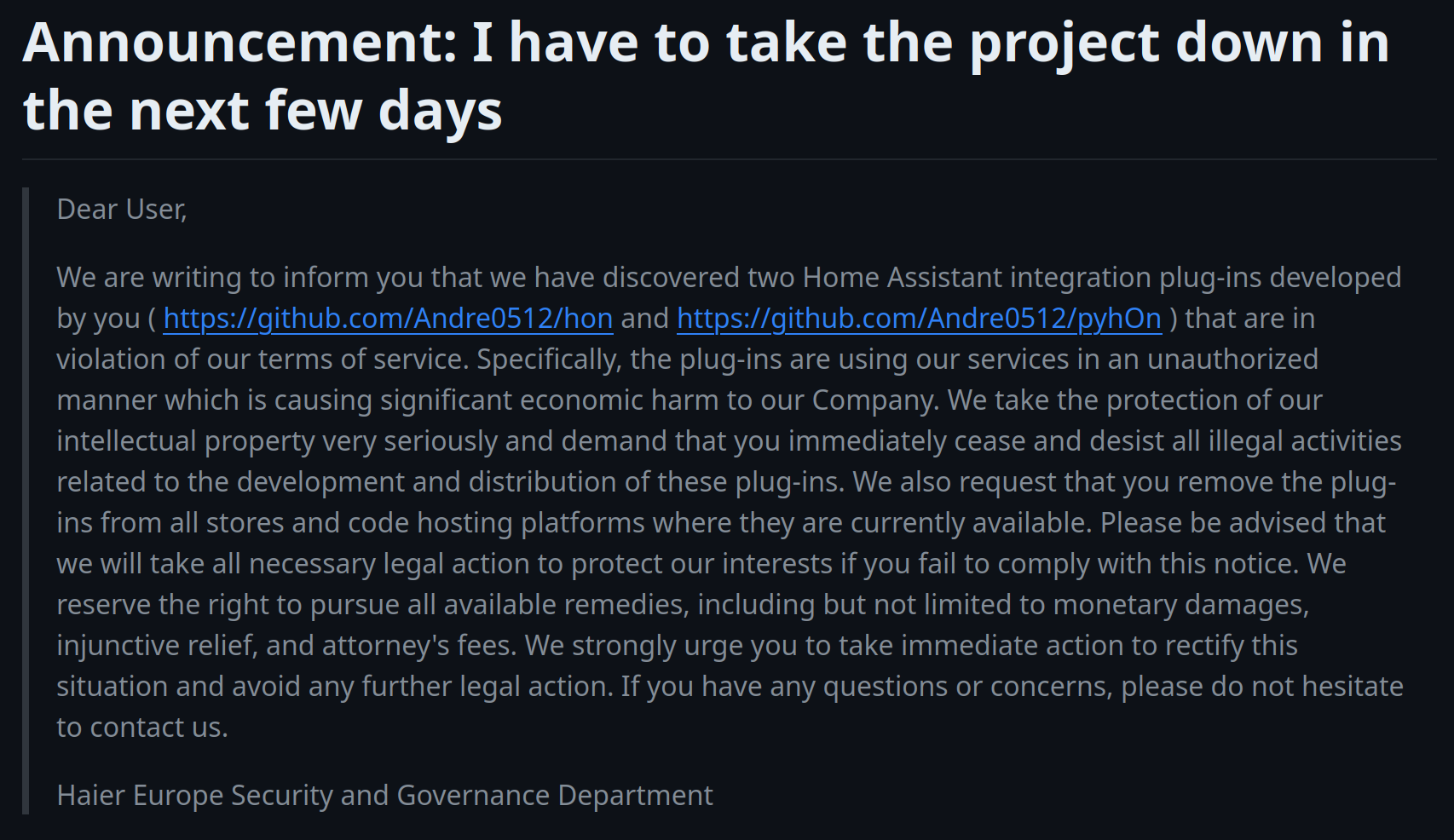698
you are viewing a single comment's thread
view the rest of the comments
view the rest of the comments
this post was submitted on 18 Jan 2024
698 points (98.3% liked)
homeassistant
18685 readers
197 users here now
Home Assistant is open source home automation that puts local control and privacy first.
Powered by a worldwide community of tinkerers and DIY enthusiasts.
Home Assistant can be self-installed on ProxMox, Raspberry Pi, or even purchased pre-installed: Home Assistant: Installation
Discussion of Home-Assistant adjacent topics is absolutely fine, within reason.
If you're not sure, DM @GreatAlbatross@feddit.uk
founded 2 years ago
MODERATORS

I am in no way defending their behavior, but API calls will always incur some cost - either in backend resource consumption with "paying" customers, or legitimate costs if they're relying on AWS infrastructure.
However, like the whole reddit debacle, API usage isn't always well optimized at the client end, and it can become a negotiation rather than a C&D....unless you're looking to make a competitor as well.
A few thoughts come to mind... 1) Some of their customers may only be customers because of HA compatibility. 2) HA does not require a cloud API to function - a LAN based solution is usually preferred anyway. 3) There are far more diplomatic ways to approach this issue.
To think, from a business perspective, that any notable portion of their userbase bought the devices with the explicit expectation that it would work with HA would be naive. We're hobbyists, a niche market, the less-than-1% of their market evaluations. Losing those customers while reducing whatever burden or cost they're incurring is probably worth it.
HA doesn't - but while I don't have any Haier equipment to say, the other smart devices in my house which aren't either esphome or tasmota don't connect locally to my devices, but to the vendor cloud API. Ecobee, Wyze, Traeger all do that instead.
Totally agreed. I think AWS API costs are a few cents to the thousand, so a discussion with the developer about the use would be the nice way instead of just kowtowing to the bean counters.
My argument to that would be if we are only a niche segment then where is the serious economic harm they are referring to? It sounds to me like API calls are happening either way but they don't want to lose out on the ad and customer tracking revenue. Also, I as other have pointed out there is no reason it needs a remote cloud to change the thermostat.
It could be a case of disproportionate impact - consider that forecasting within Haier for their cloud API would probably be based upon X number of units in the field and Y number of average API calls per unit/user/premises. At 40,000 units in the field at 1000 calls per day (which they know because they designed the software, or at least had a hand in resourcing discussions), you have 40,000,000 calls per day.
If you have some third party app which is generating 4,000,000 calls by itself, and you see only 400 users doing this, then it's a simple high usage target to hit.
Ad revenue, maybe. Tracking is still possible because it's the same device, and if there's any security at all, they'll still have all the native API stuff they'd normally get, temperatures, weather, occupancy, etc.
I will say at a brief glance at the repo for the project that there's some calls which imply it would get the local IP for the device, and may from there be able to issue calls direct to the device. That would make me think there's only a few calls to their cloud to establish a relationship and product info, so the disproportionate load theory, barring bugs, doesn't hold up. While it's been a good brain exercise, we'll be left guessing, and hoping Haier decides to be better.